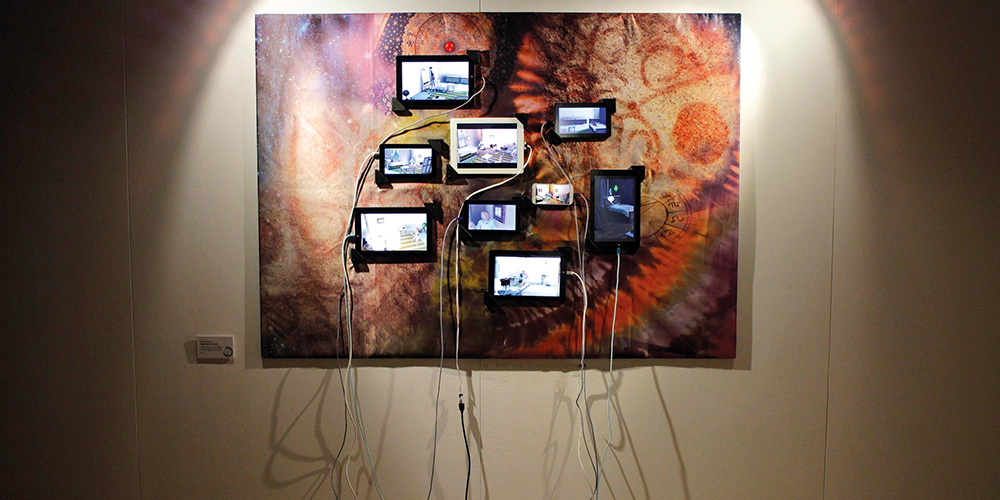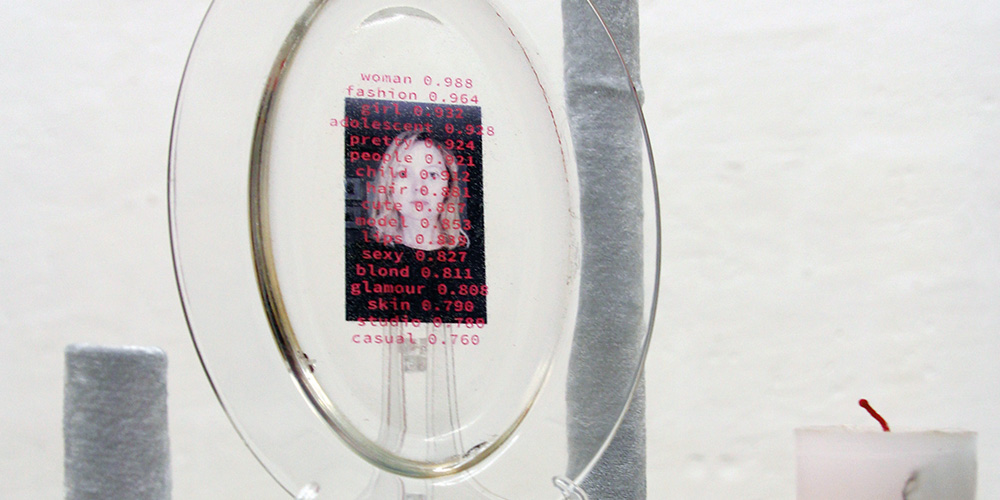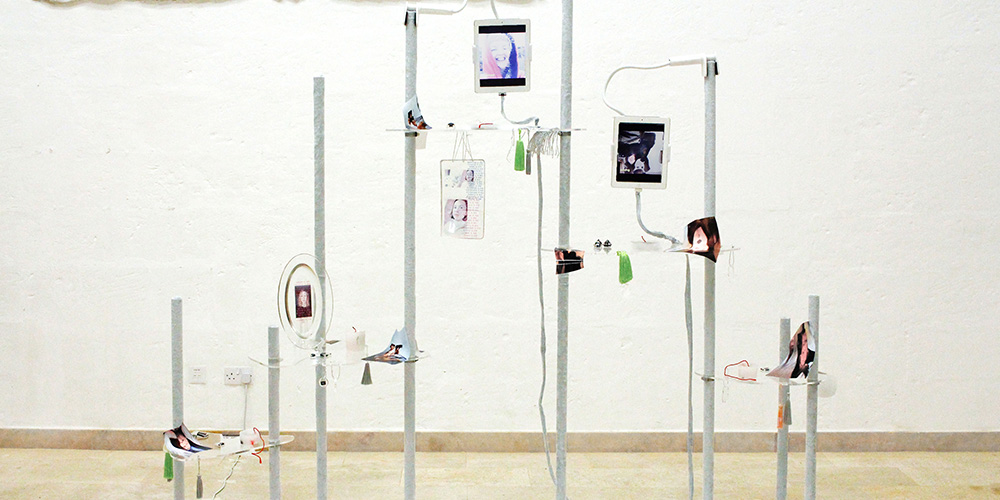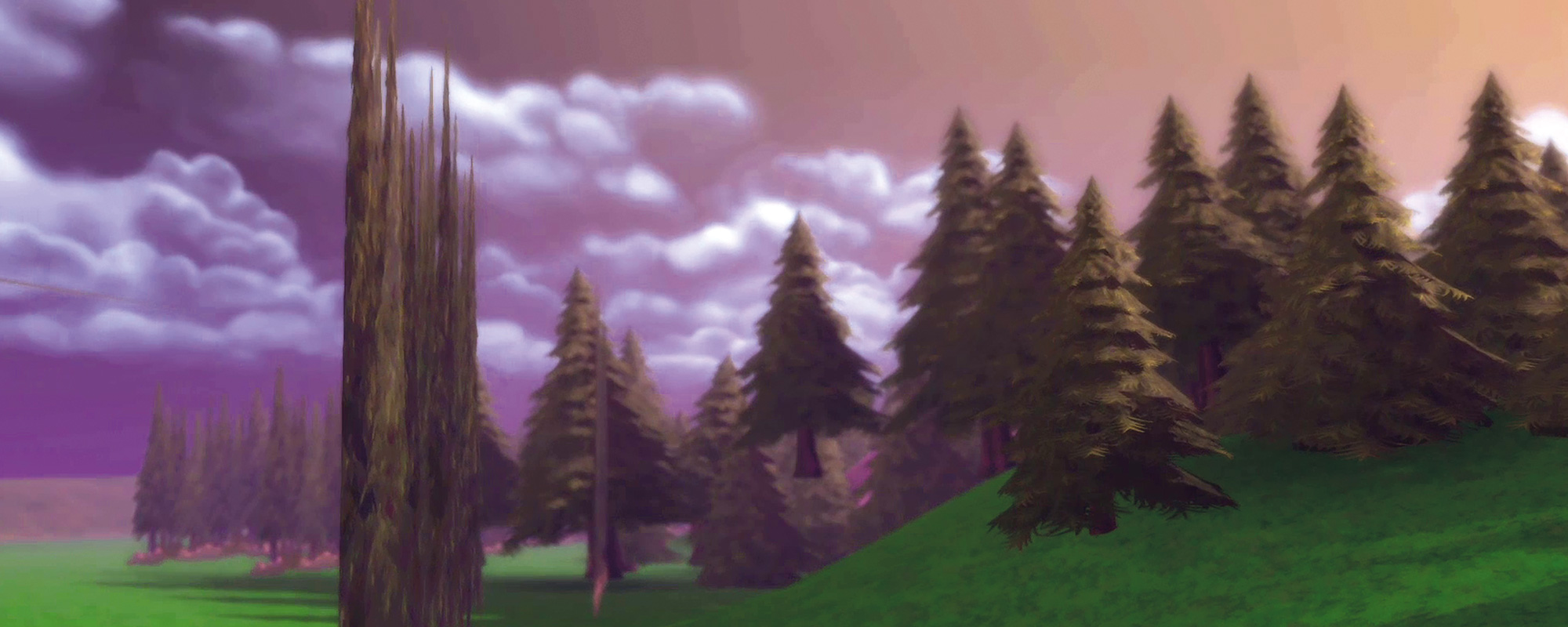Author: Daiva Repeckaite
‘I find it quite interesting that the transition [from face-to-face to digital communication] is uneasy for some people. For me it’s all the same,’ says contemporary artist Letta Shtohryn. Although her artistic practice suffered when three exhibitions she was to take part in were postponed, her working methods remained unchanged when communication moved online amid the COVID-19 pandemic. Already in 2019, three of her artist residencies were fully digital.

A graduate in Digital Arts (University of Malta), Shtohryn utilises critical media reflections linking the digital with the tangible, the historic with the current. Shtohryn’s work explores the intersection between the digital and the human, coexisting in a world governed by algorithms.
‘In Malta, there is so much resistance to accepting this fact that online is just as real as the physical world. For me this was always the case, but it’s nice to see that even conservative institutions are accepting this. It’s no longer something additional,’ the artist tells THINK. ‘Last year I curated an online exhibition on a digital platform I created, called WhatDoWeDoNow? It was part of the Wrong Biennale for digital art, with both online and offline shows. Reactions in Malta were interesting, with some people not considering the online part as being “real”. Now when the screen is our only window to social interactions and culture, the exhibition has much more interest from locals.’

Shtohryn closely followed the proliferation of online platforms launched by galleries worldwide, and submitted some works. ‘It would be interesting to see if the physical space-based galleries would consider the online space not only to showcase physical pieces but also as a space to create new works that live only online,’ she says, hoping to see similar initiatives in Malta.
Over the past years, she held numerous artist residencies from Lisbon to Reykjavik. Does she miss travelling when confined to her Birkirkara home? ‘Not being in lush and vast nature, not being able to travel is difficult. You can’t just drive off the island. But at the moment the focus has to be on those [people] who were fired without notice or those struggling to survive. Travel was very important for me, but putting it into perspective, it’s just a side thing, I can wait.’

How does this affect her artistic inspiration? ‘What I miss the most is the experience of nature. I’ve been thinking how one can experience nature through virtual outdoors inside open-world video games – those where a player is free to explore the game world. I’ve been working on some performances within video games and VR worlds,’ the artist reflects, as she prepares to abandon her customary installations for pure screen work.
Shtohryn has already employed a robot for a cleansing ritual (Ritual Crossover 2019) and constructed an algorithmic oracle from a SIMS3 video game to project what-if scenarios of a house fire (Algorithmic Oracle, 2019). The pandemic will be relatively easy to adapt to. Her advice to other artists? ‘Just accept the online world as being real, it’s just the same kind of reality.’





Comments are closed for this article!